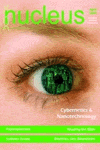This patient has a clear agenda - he does not want to use steroid cream. You should first decide to explore his ideas and concerns further; many patients have quite unfounded fears about side effects from different treatments. It would also be reasonable to go through the evidence that suggests this is a tried, tested, effective and essentially safe treatment for such conditions. You may not get very far here, but it is important not to gloss over the issues he raises. Some of his concerns may be very reasonable.
Next you need to address his request to be referred for homeopathy. You need to have a good understanding of what homeopathy is and what it offers (see box) so that you can advise this man appropriately. As a Christian you should be especially concerned about the spiritual roots of many alternative medicines. Frequently they claim to operate by manipulating a 'life force' that is inconsistent with a Judaeo-Christian worldview. I suggest you read around the subject so that you have a grasp of the pitfalls and the issues pertinent to each therapy (see Further Reading).
Arguments abound as to whether using an alternative therapy means that a patient must 'sign up' to its origins. However, I believe that in the age of informed consent, every patient has the right - and we as doctors the responsibility - to be informed about the real benefits and dangers of any therapy being offered. Your patient should be aware of these before proceeding with treatment. Some patients can be amazed when the theory behind a therapy is explained to them.
In the same vein, you need to decide whether you are prepared to refer to alternative practitioners whose personal methods may be rooted in the 'darker' spiritual realms. Would it present the same moral dilemma as referring a lady for an abortion? Does it really matter? I think it does, and whilst it may not be in the same ballpark as destroying a human life, it is an issue we must take seriously. We should always be aware of God's desire for us to live and practise in a manner that glorifies him. Chatting gently to your patient and informing him of the issues involved may prompt him to stop and think. It may prompt a deeper discussion about spiritual issues, or even an opportunity to explain the gospel! The alternative is to avoid challenge altogether and be tolerant of every request. Whether you would refer to the other GP in this case is up to you. A good way out if you believe it would be wrong is to suggest that he contacts the other doctor himself directly. Private alternative practitioners do not usually need a GP referral in order to see patients. The middle ground would be to write a letter requesting an opinion without endorsing the request.
Finally, more and more research is being done to investigate alternative medicine. The results so far for almost all therapies have been less than favourable and this should be borne in mind. However, alternative practitioners have carried out their arts for centuries without scrutiny, and favourable reports and anecdotes from friends and relatives who feel they have been cured remain powerful. The question is: are alternative medicines more effective than placebo? We should be very wary of encouraging patients to use treatments that may have no credible scientific basis or reliable evidence of their efficacy. At best this may cause them to delay in using a proven orthodox treatment.
The bottom line is that if patients want to pursue these lines of treatment they should know the facts. Firstly there are spiritual issues involved, and secondly the evidence base for them is poor.
Homeopathy
The Oxford Dictionary defines homeopathy as 'the treatment of disease by minute doses of drugs that in healthy persons would produce symptoms like those of the disease'. It was principally developed by Samuel Hahnemann, a 19th century German physician. He used a wide range of substances dissolved or ground up in water and alcohol to produce a 'mother tincture', then progressively diluted this before administering it. He also shook the preparations between each dilution, to increase their effectiveness. He believed that a 'vital force' was imparted to the medicine by this shaking. Homeopaths thus believe that the weaker the solution, the more powerful its effect. There have been a significant number of clinical trials investigating homeopathy, but rigorous analysis of this data has failed to demonstrate any conclusive evidence for its efficacy or value.
Enigma 8
A 17 year old girl comes to talk about contraception. She is a virgin but is planning to start sleeping with her regular boyfriend. How would you approach this consultation and which issues need to be covered?
Further Reading
- Coker R. Alternative Medicine - helpful or harmful? Crowborough: Monarch, 1995
- O'Matúna D, Larimore W. Alternative Medicine: The Christian Handbook. Grand Rapids: Zondervan, 2001.
- www.cmf.org.uk/index/alternative_medicine.htm - archive of CMF articles on this topic o Ernst E (ed). The Desktop Guide to Complementary and Alternative Medicine. Edinburgh: Harcourt, 2001. A useful compendium of research into alternative therapies.
- www.pms.ac.uk/compmed/ - Department of Complementary Medicine at the University of Exeter. The only UK university chair of complementary medicine.
































